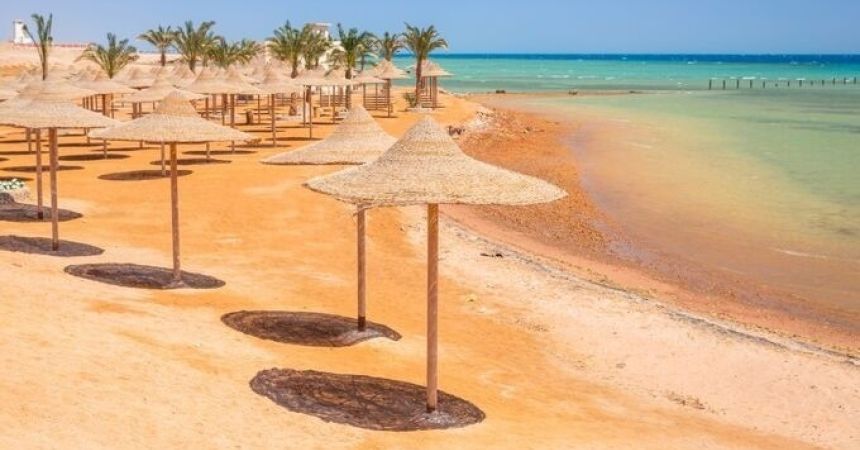
Perfect Egypt Trip Planning Guide for First Time Travelers
Planning a journey to Egypt is exciting, inspiring, and full of possibilities. From legendary pyramids to tranquil Nile cruises, Egypt offers unforgettable experiences for every traveler. Whether you are booking luxury packages, cultural tours, or a romantic honeymoon vacation, careful planning ensures your Egypt travel experience is smooth, safe, and deeply rewarding.
This guide will help you organize the perfect Egyptian holiday, covering destinations, timing, budgets, and essential tips.
Choose the Best Time to Visit Egypt
The ideal time to visit Egypt is between October and April, when temperatures are comfortable for outdoor sightseeing. During these months, travelers can explore temples, deserts, and historical sites without extreme heat.
Summer months are quieter and more affordable but can be very hot, especially in Upper Egypt. Many travelers prefer winter and early spring for relaxed exploration and luxury vacation packages.
Decide on Your Travel Route and Destinations
Egypt offers diverse experiences within a compact geographical area. First-time visitors usually combine:
- Cairo for pyramids and museums
- Luxor for ancient temples and tombs
- Aswan for Nile views and Nubian culture
- Red Sea resorts for beach relaxation
Short trips focus on Cairo and Luxor, while longer itineraries include Nile cruises and coastal stays. Customized Egypt travel packages help balance culture and comfort efficiently.
Set Your Budget and Choose the Right Package
Egypt suits a wide range of budgets, from affordable group tours to ultra-luxury private journeys. Decide early whether you prefer budget hotels, mid-range comfort, or five-star resorts and cruises.
All-inclusive holiday packages often include accommodation, transportation, guides, entrance fees, and some meals, simplifying planning and controlling costs. Honeymooners can choose romantic upgrades such as private guides, luxury cruises, and boutique hotels.
Book Flights, Hotels, and Nile Cruises Early
International flights to Cairo are widely available from Europe, the Middle East, and Asia. Domestic flights between Cairo, Luxor, and Aswan save time and energy.
Nile cruises are extremely popular and should be booked in advance, especially during peak season. Many Egypt vacation packages combine flights, hotels, and cruises into one smooth itinerary.
Prepare Travel Documents and Essentials
Ensure your passport is valid for at least six months and arrange your Egyptian visa in advance or on arrival. Keep printed and digital copies of your bookings, insurance, and identification.
Pack lightweight clothing, comfortable shoes, sunscreen, a hat, medications, and a universal adapter. Respectful clothing is recommended for religious and historical sites during sightseeing.
Stay Safe and Respect Local Culture
Egypt is generally safe for tourists, especially within organized tours and guided groups. Follow basic precautions: avoid isolated areas at night, keep valuables secure, and listen to your guide’s advice.
Learning a few Arabic phrases and dressing modestly shows respect and enhances cultural connections. Tipping is common and appreciated for good service.
Add Special Experiences for Honeymoon and Luxury Travel
Couples planning a honeymoon vacation can enjoy private Nile cruises, hot air balloon rides in Luxor, spa treatments in Aswan, and romantic dinners overlooking the pyramids.
Luxury travelers can request personalized guides, private transfers, fine-dining experiences, and exclusive historical site access through premium Egypt Tour packages.
Final Thoughts
With thoughtful preparation, Egypt becomes one of the world’s most rewarding destinations. Its blend of ancient history, warm hospitality, and scenic beauty makes every holiday memorable.
Whether you prefer guided cultural tours, relaxing luxury Egypt vacation packages, or a once-in-a-lifetime honeymoon vacation, planning ahead ensures your Egyptian adventure is seamless and extraordinary.

Frequently Asked Questions (FAQ)
- How many days are ideal for a first trip to Egypt?
Seven to ten days is ideal to cover Cairo, Luxor, and Aswan comfortably, including museums, temples, and a short Nile cruise experience. - Is Egypt suitable for honeymoon vacations?
Yes, Egypt offers luxury cruises, romantic resorts, private tours, and scenic landscapes, making it perfect for couples seeking a unique honeymoon experience. - Are guided tours better than independent travel in Egypt?
Guided tours save time, provide historical insight, improve safety, and simplify logistics, especially for first-time travelers with limited local knowledge. - What should I avoid when traveling in Egypt?
Avoid unlicensed guides, isolated areas at night, disrespectful clothing at religious sites, and carrying large amounts of cash in public places. - Do Egypt travel packages include internal transportation?
Most packages include domestic flights, private transfers, and guided transport, making travel between cities smooth and stress-free for visitors.



